South Korea is in the midst of its most severe internal crisis in decades. Though it is never a good time for domestic political upheaval, the current crisis is especially unpropitious. Donald Trump’s unexpected victory in the U.S. presidential election has compelled states across the globe to reassess their national strategies, and some of the biggest potential changes are in East Asia. The president-elect’s provocative campaign statements about trade, alliance burden sharing, and nuclear proliferation have generated widespread unease about future U.S. policy, with both Tokyo and Seoul voicing deep concern about where the Trump administration might be headed.
President-elect Trump and some of his closest advisors have sought to ease these concerns, insisting that the alliances with Japan and South Korea remain vital to U.S. interests. Several of Mr. Trump’s earliest phone calls to foreign leaders went to Prime Minister Abe and to President Park Geun-hye, and Abe then became the first foreign head of state to meet with the incoming U.S. leader.
But the president-elect has also declared (much to Japan’s consternation) that one of his initial acts as president will be to withdraw from the Trans-Pacific Partnership negotiated under the Obama administration. Though South Korea was not a party in these negotiations, any signals that the United States intends to retreat from multilateralism is viewed with ample disquiet in Seoul. If Mr. Trump also carries out his threat to declare China a currency manipulator and if this designation were accompanied by the imposition of tariffs, the roles of Japan and South Korea in global supply chains could be severely disrupted.
But ROK President Park Geun-hye is now fully preoccupied with her own political survival. Damning evidence that Choi Soon-sil, a close personal friend and advisor of President Park’s, reaped major financial gains through her relationship with the president and played a central if unofficial role in high level policymaking has stunned nearly all Koreans. There are widespread suspicions that President Park had direct knowledge of Ms. Choi’s malfeasance, and state prosecutors have intimated as much. The outpouring of citizens in weekly demonstrations against President Park, though entirely peaceful and even celebratory, seem very likely to continue, bringing added pressures to bear on the embattled leader.
Though Park retains the support of a core group of loyalists within the Saenuri Party, she is an increasingly isolated and greatly diminished political leader. Park’s approval rating now barely registers at five percent, and there is increasing sentiment across the political divide to compel the president’s resignation before the scheduled completion of her term in February 2018. But (even as state prosecutors have moved against some of her close advisors) Park at present refuses to testify, which might well make impeachment charges inevitable.
However, the impeachment process under the ROK constitution operates very differently than in the United States. If President Park is able to retain at least limited support from her core political allies, the process could drag out well into 2017. The scheduled presidential election is to take place in December of next year, but her resignation or her removal from office would trigger an election to replace her after two months, all the while as various contenders for the presidency seem less than fully prepared for a snap election.
Regardless of the outcome of the ongoing political turmoil within South Korea, the prospect of political immobilism or internal disruption is extremely disquieting at a time of strategic turbulence in Northeast Asia. These are circumstances that North Korea (already almost gleeful over Park’s political incapacitation) will be only too eager to exploit. Pyongyang is highly practiced at injecting instability at times it deems appropriate, and the conjunction of a U.S. presidential transition and domestic crisis in Seoul could prove irresistible. Another nuclear test, a long-range rocket test, one or more missile tests, or other threatening actions could be among the possibilities; North Korea could thus readily trigger the first security crisis that the Trump administration will confront.
At the same time, the ROK Defense Ministry has signed a long-deferred intelligence sharing agreement with Japan and has reaffirmed its determination to proceed as quickly as possible to introduce the Terminal High Altitude Air Defense (THAAD) missile defense system, with both steps undertaken over heated Chinese objections. But both measures (especially the intelligence sharing agreement) face intense domestic opposition in the ROK, leading some critics to view these actions as designed to shore up President Park’s dwindling support in domestic politics.
The conjunction of a domestic crisis in South Korea and mounting security anxieties on the peninsula are deeply disquieting, and represent an early portent of what the Trump administration could confront very early in its tenure in office. If the incoming president entertained plans to distance the United States from its long-standing alliance commitments, he might soon need to grasp how realities can intrude on campaign pledges, and not at a time and place of his choosing.
The Brookings Institution is committed to quality, independence, and impact.
We are supported by a diverse array of funders. In line with our values and policies, each Brookings publication represents the sole views of its author(s).

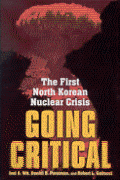
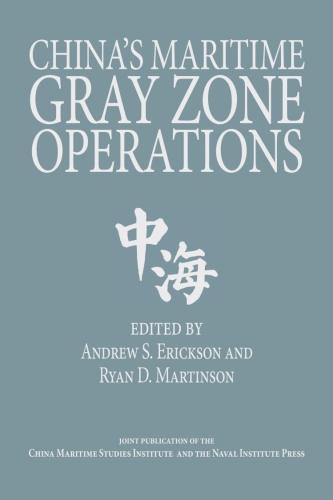
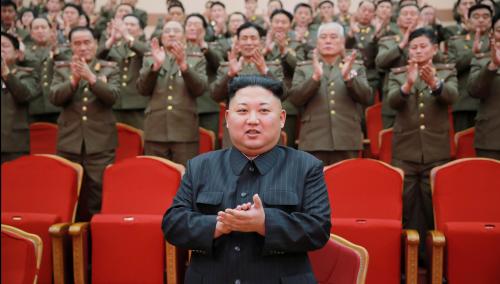
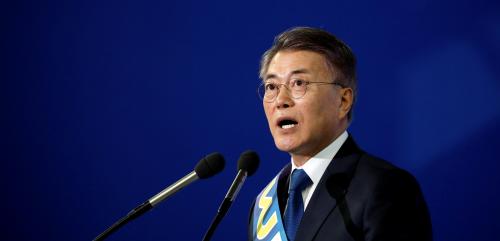
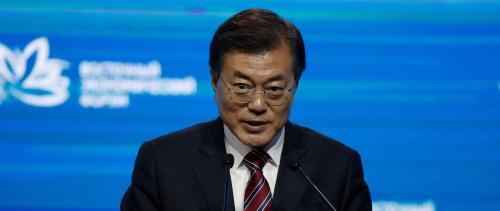
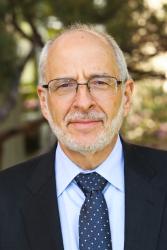
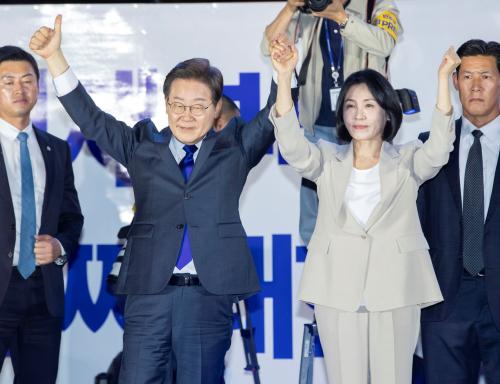
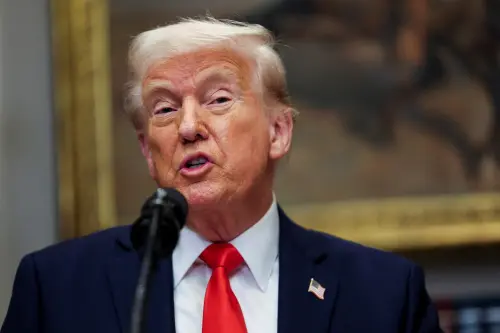
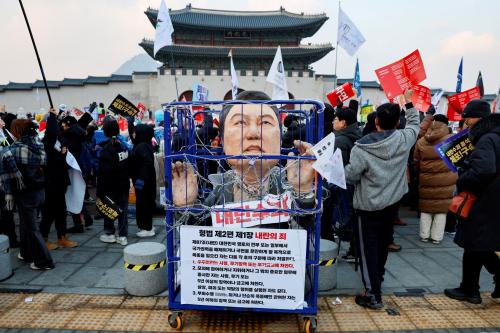
Commentary
South Korea’s year of living dangerously
November 23, 2016